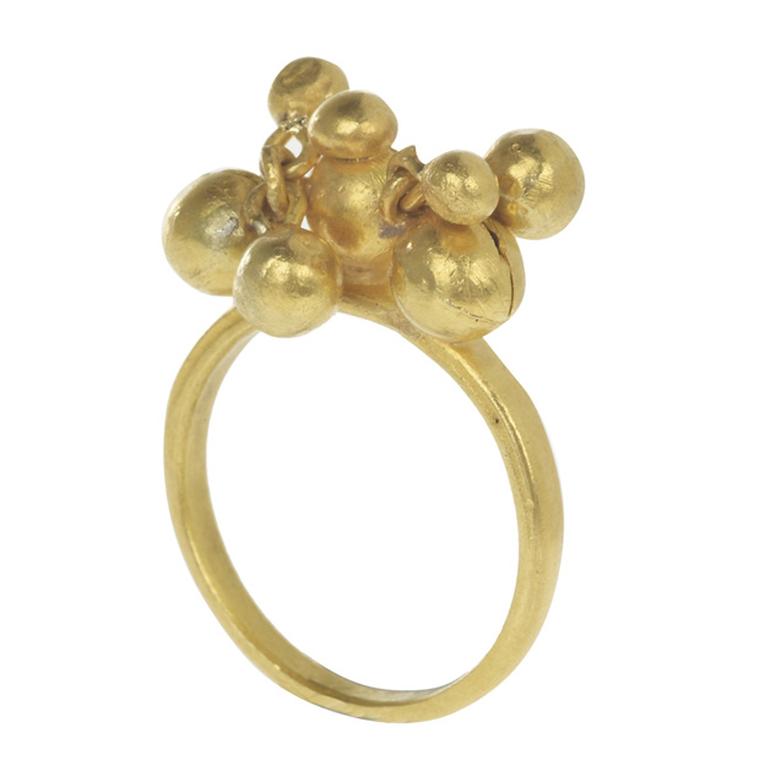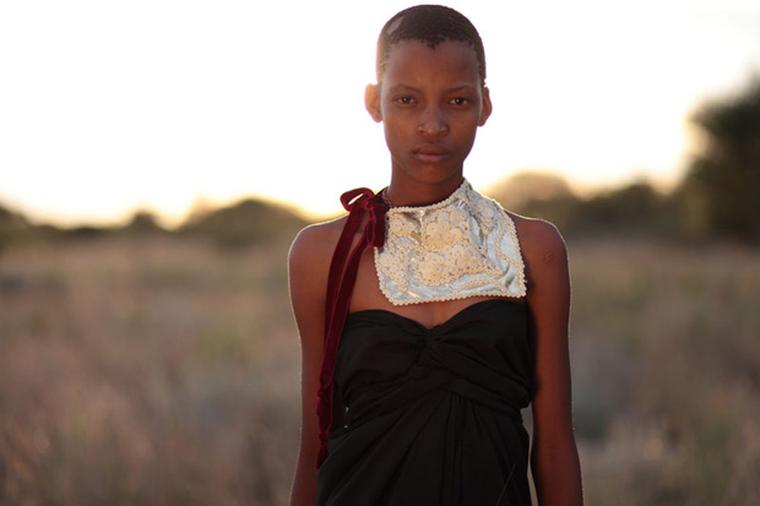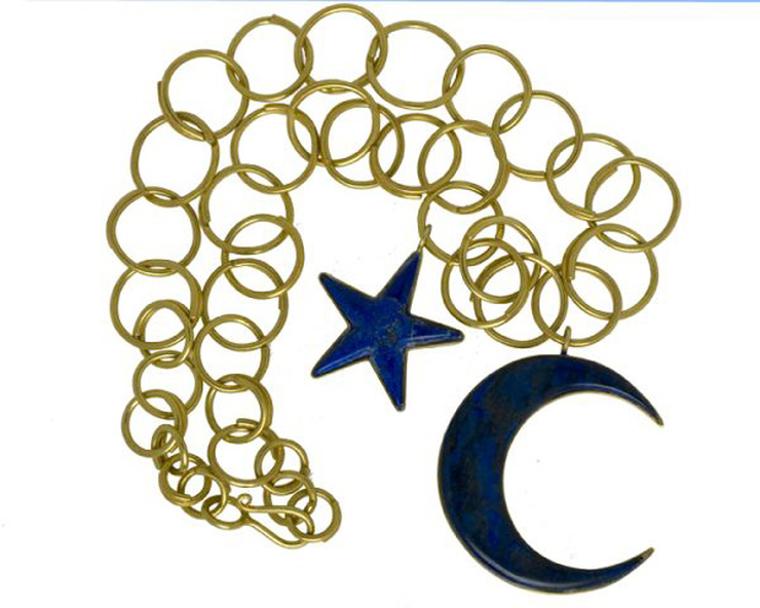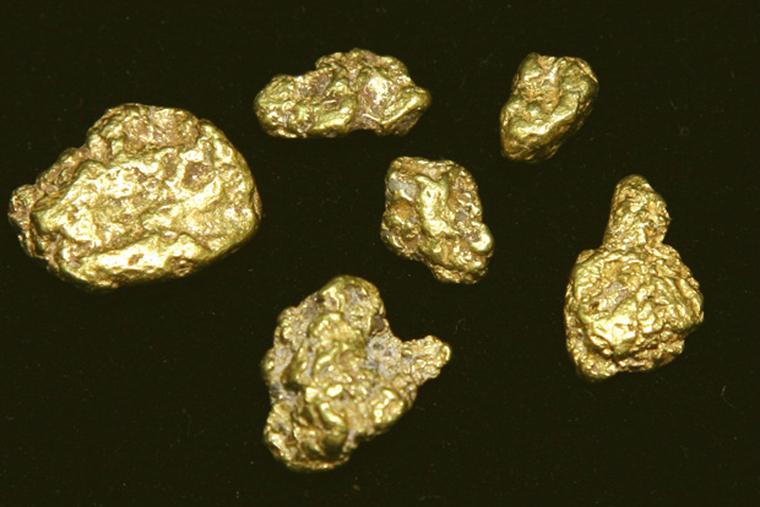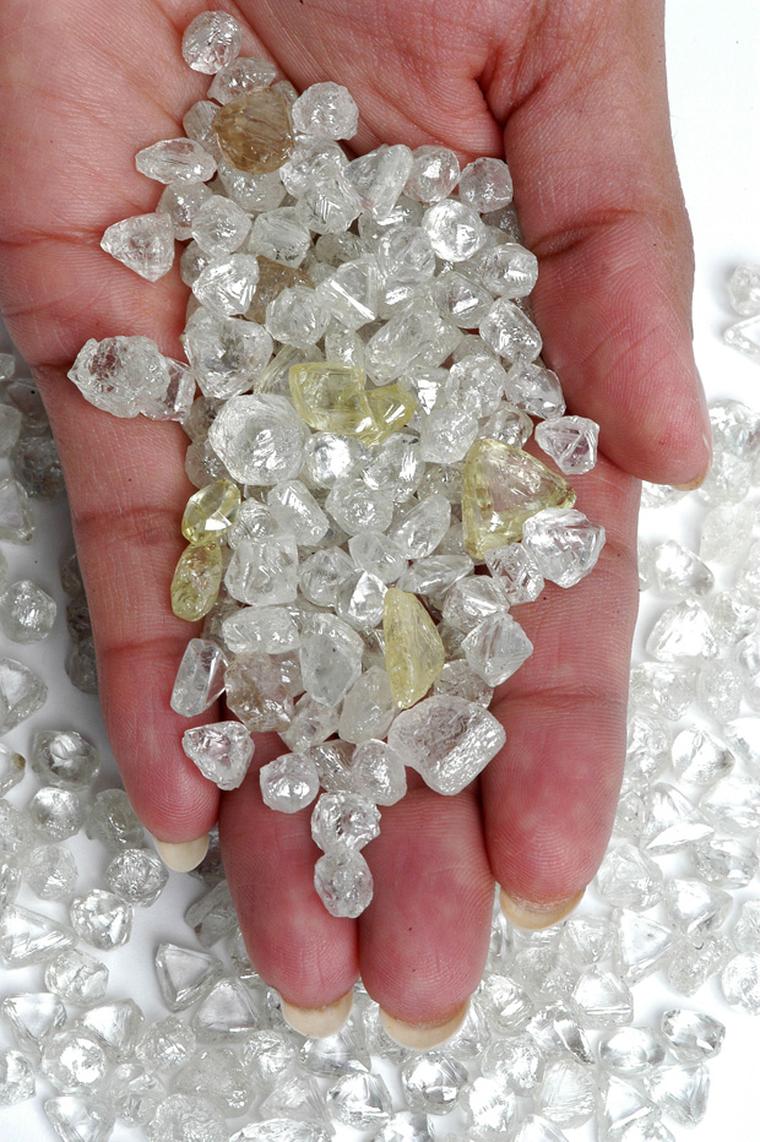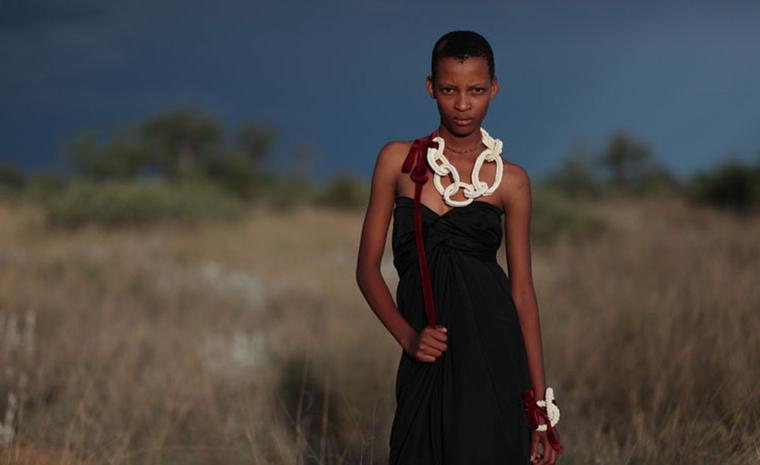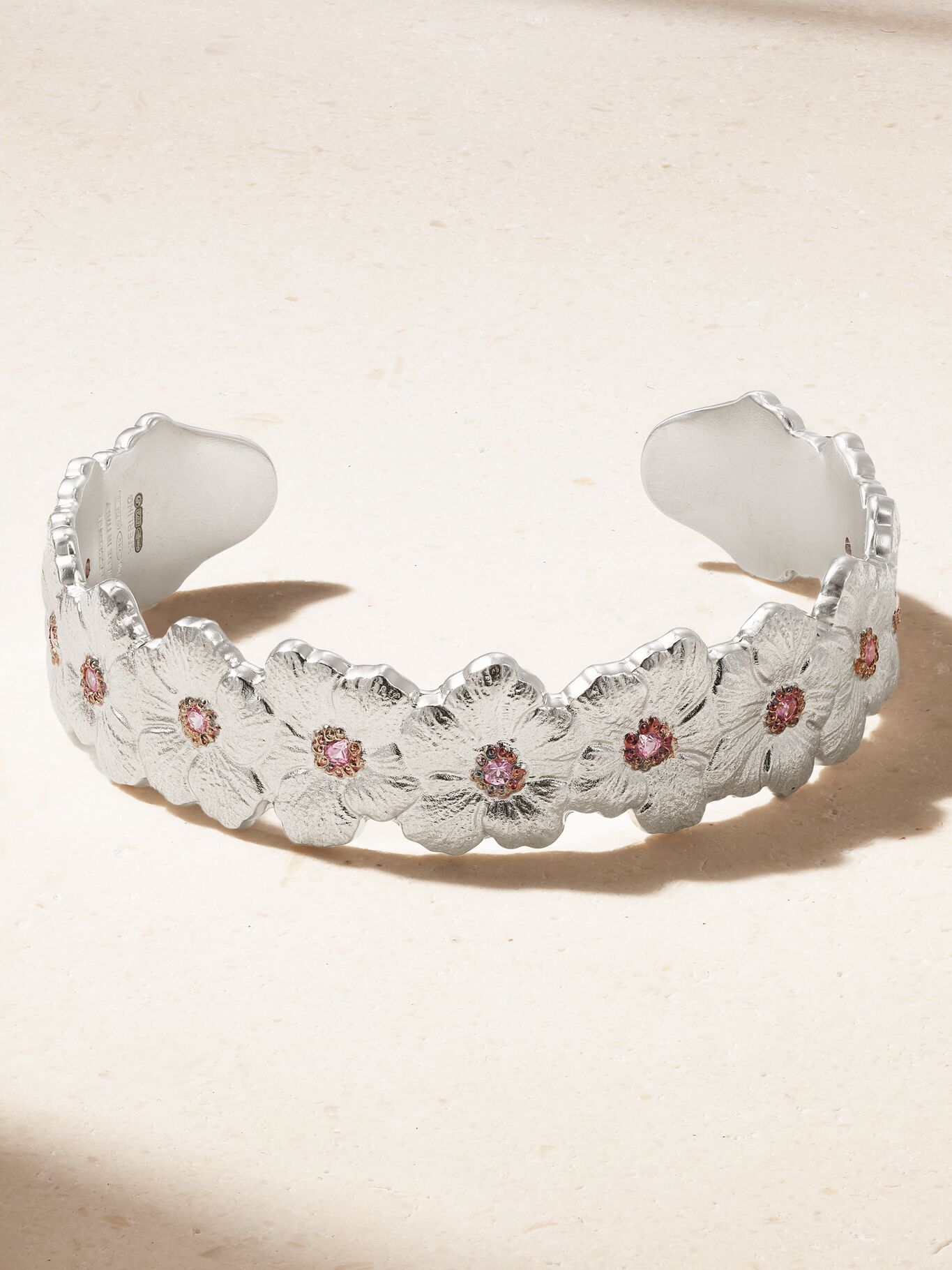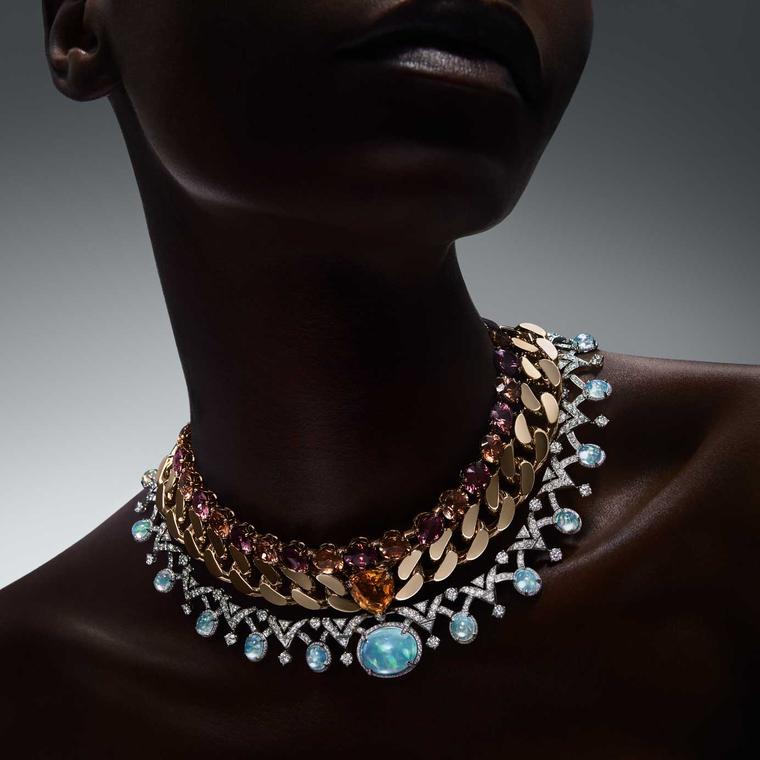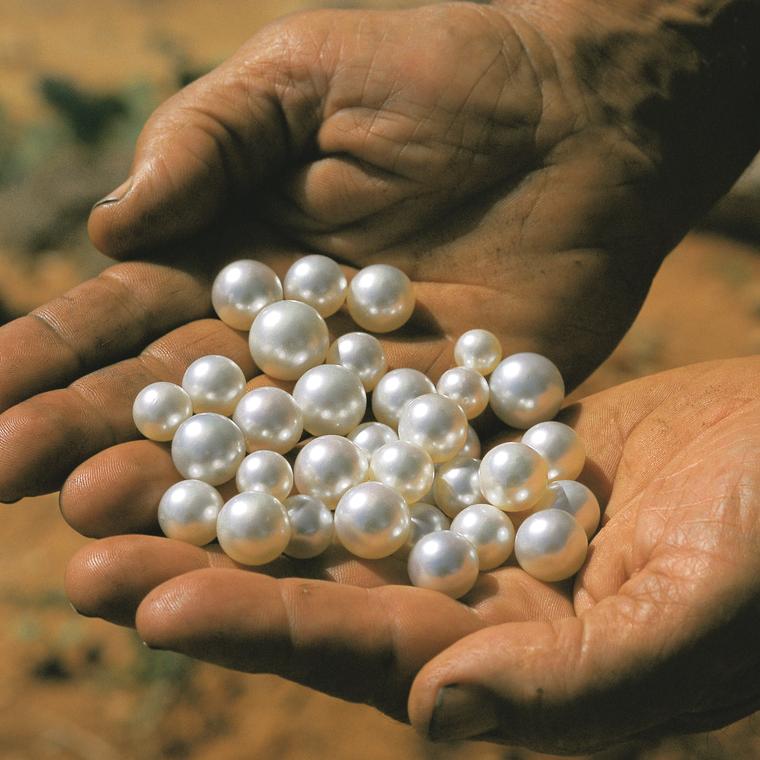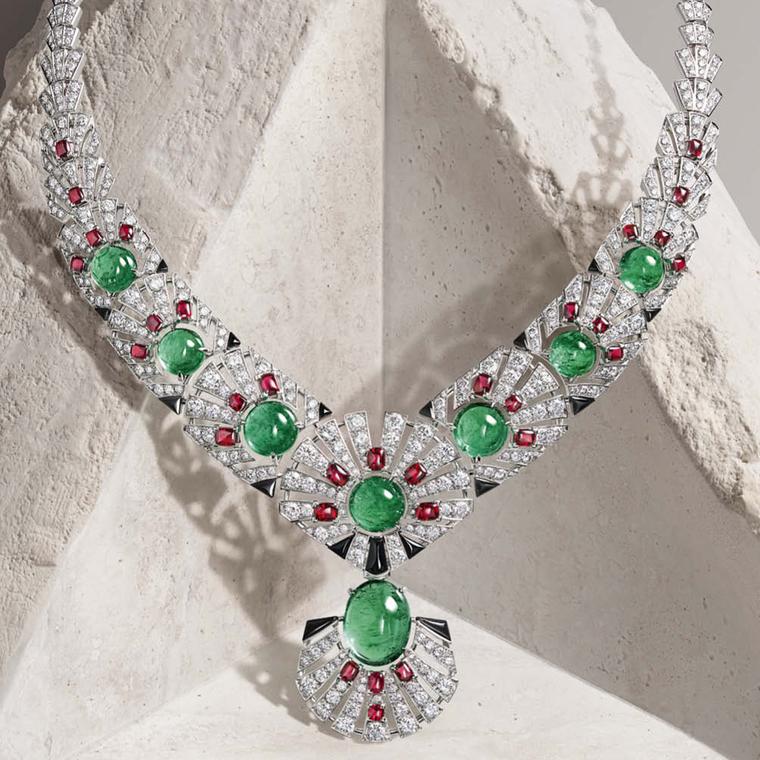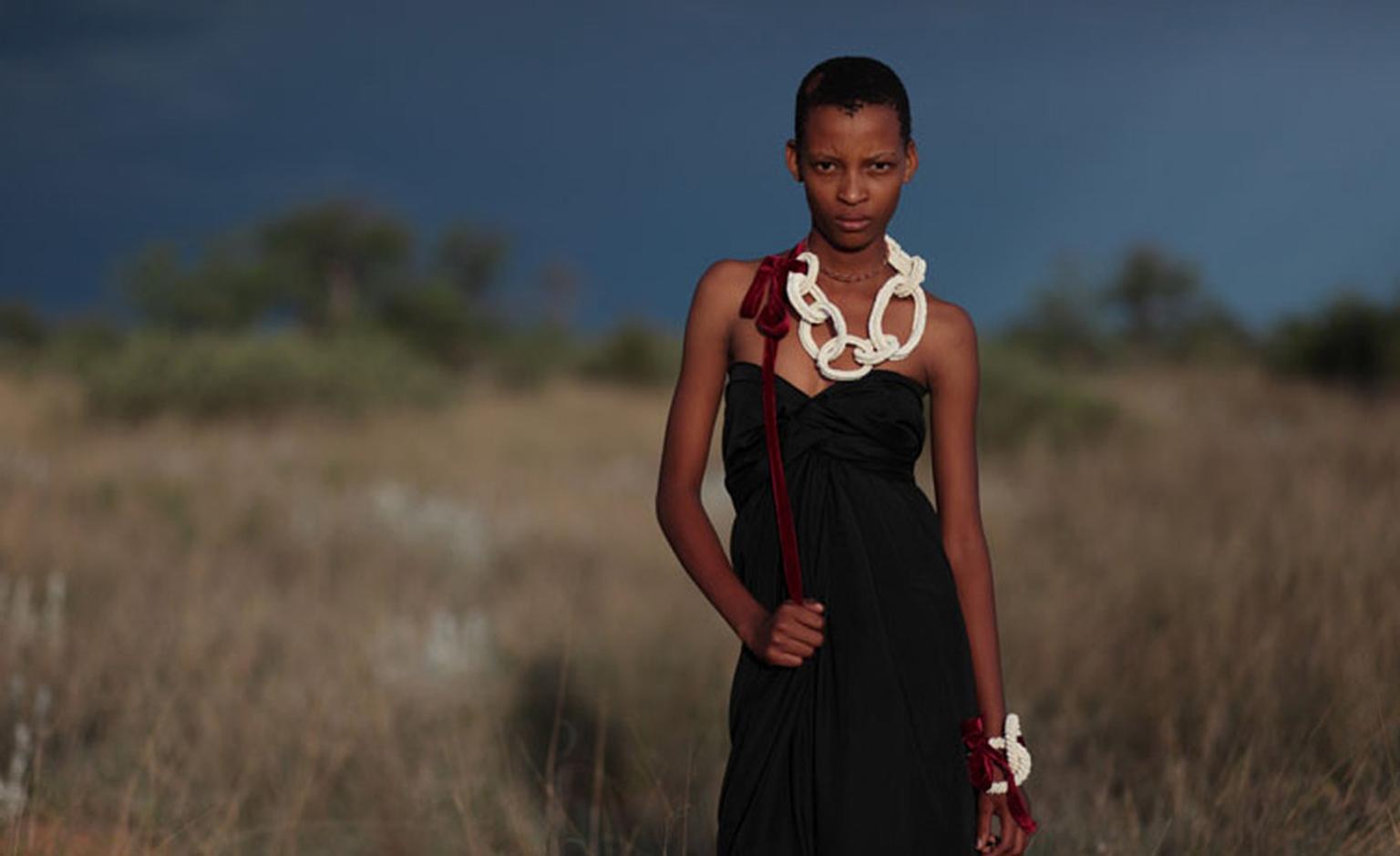
Some people are trying to change the world. Not with guns or pamphlets or protests but with jewellery. Take Sabine Roemer, independent jewellery designer and Anna Haber. Together they visited the Kalahari desert with the aim of helping the Bushmen make jewellery from local materials such as ostrich shell and glass beads for up-market UK boutiques. In exchange, the Bushmen receive a fair price. Sekopaleina, shown below and above, is modeling the Jewels of the Kalahari collection will benefit from the proceeds that will go towards paying her education. Projects like these may be small-scale initiatives but indicators of the biggest trend in jewellery which is not about which tone of gold is in, or if opals are the new 'it' stone. It is about where and how the jewels sparkling in shop windows are sourced and made. Pippa Small, the Notting Hill-based jeweller and anthropologist has been quietly leading the way with her grass-root schemes to change the lives of the most underprivileged. As an anthropologist, she understands the need for sustainable development and long term benefits. Pippa has worked across the globe with communities in Africa, Panama and most recently Afghanistan. In this war wrecked nation, Pippa is helping the women of Turqouise Mountain charity to create jewellery to sell beyond their limited home market.In Nairobi she is is helping groups of jewellers in the slums to create jewellery that will appeal to European markets. Organised by MADE the company specialising in fair trade accessories, that encourages trade, not aid to eradicate poverty. Their collections are by influential designers such as Pippa Small and they hope to bring new skills to struggling artisans. When it comes to diamonds, always buy from a reputable source and ask if the diamond complies with the norms of the Kimberley Process that aims to eliminate conflict or blood diamonds from the supply chain. Diamonds have done more good than bad in Africa and initiatives from big companies such as the Diamond Trading Company with mines across Africa has brought medical attention and education to remote corners of the continent. In Botswana, diamond revenues mean that every child has access to free education. When buying any jewellery, please look for retailers and manufacturers who are members of the Responsible Jewellery Council and there are now some 130 members including big names such as Cartier, Van Cleef & Arpels and Boucheron. A Goldlake project in Honduras now produces ethically produced and environmentally friendly gold and supplies to the likes of Cartier. The Eurocantera mine run by Goldlake, unlike other gold facilities, does not use poisonous chemicals such as cyanide that seep into the water system. CRED in another company to look out for. This UK based firm is pioneering the use of sustainably sourced raw materials for their jewellery. On a much larger scale, Tiffany & Co have long had a policy of ensuring the origin of their raw materials and operate to improve the sustainability of their products. It is one of the few houses to not use Burmese rubies or coral.


